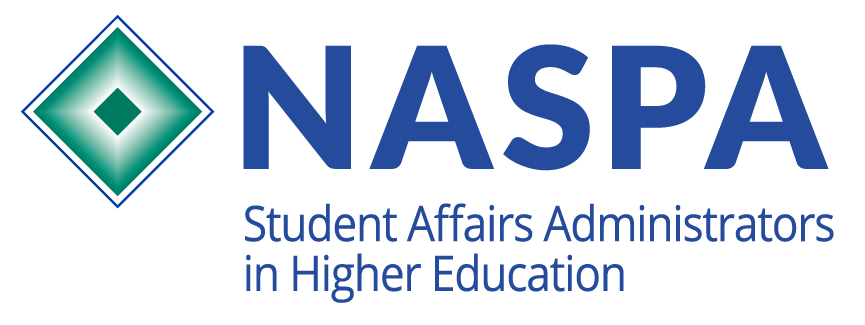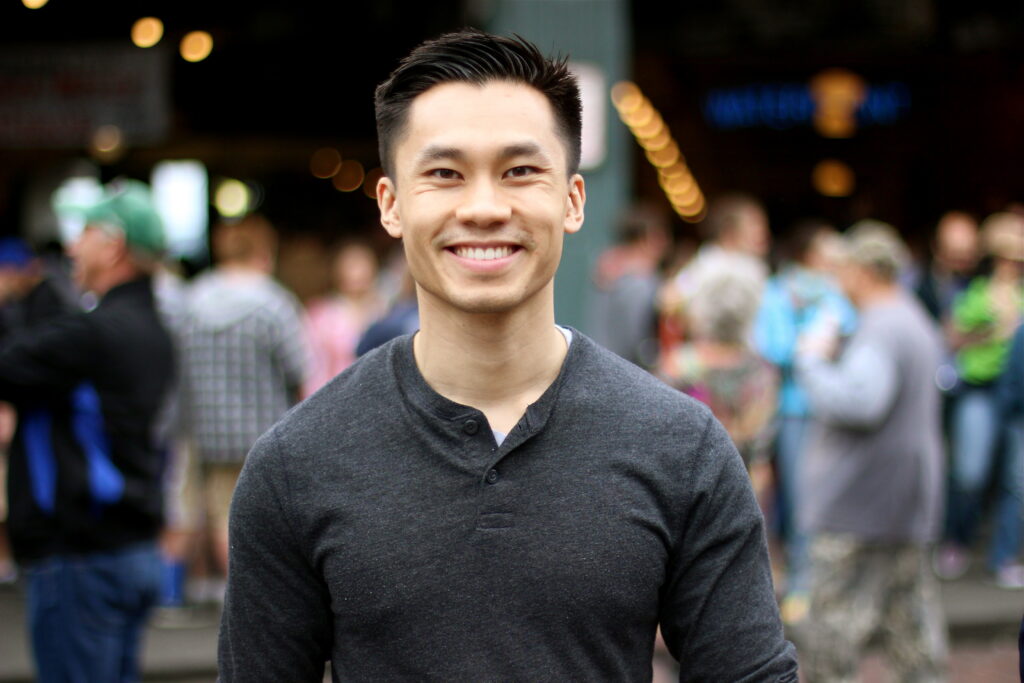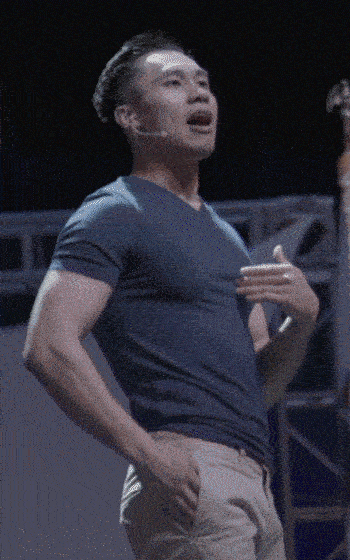NASPA hosted a webinar on May 20th, 2020 discussing how universities are reopening facilities in the fall. Hosted by Kevin Kruger, president of NASPA.
Panelists:
Morgan Meehan: Education Council for ACUI; Director, Popp Martin Student Union and Cone University Center at University of North Carolina at Charlotte
Vicka Bell-Robinson, ACUHO-I and Associate Director of Residence Life, Miami University
Leah Hall Dorothy, past president of NIRSA; Director of Recreational Sports at Oregon State University
Kevin began the discussion commenting that he is seeing a lot of colleges reopening, with two thirds of campuses saying they will open live in some fashion. There will be some kind
of hybrid as institutions move towards a different version of normalcy.
He asked each panelist different questions, the first question he directed towards Vicka:
Considering the challenges regarding testing and tracing availability, will institutions be liable if staff, faculty, or students become ill on campus?
Vicka answered by explaining that ACUHO-I is taking into consideration a variety of different details. Facilities are a huge part of that because that’s where students spend most of their time; Each campus will have to make decisions based on their individual environments when looking at what they will be doing to stay safe if they are moving back to being in person on campus.
Regarding facilities and ACUHO-I, they are discussing the following topics: what does capacity look like and whether or not to move to offering single rooms or doubles, what do bathrooms look like, how to spread people out, what are the financial aspects of this? If you reduce occupancy what does that mean financially? There are a number of things to take into consideration. She says they have to remember they are working with independent actors-each student is different and has different needs and ways of engaging with each other in recreation halls, residence halls, and during extracurricular activities. There is a difference between creating rules and regulations and how students may or may not adhere to them.
Kevin asked Vicka about the output. Vicka responded by saying that their Future of Housing Committee, made up of members throughout the USA, are offering some deliverables and a checklist to address COVID-19. As they take into consideration conversations regarding campuses, they are looking at what schools can take from the Future of Housing work groups and use on campus.
Kevin then asked, is acuho-i providing flexibility around housing, i.e. single or double rooms, how will you mitigate risks? Vicka explained that they are following guidance recommendations, asking staff, and allowing it to be flexible. They will also look at data compiled from what other schools are doing.
Kevin then directed the next question towards Leah: Can you talk about the facility component and the engagement process?
Leah said, from a NIRSA perspective, as an association the pivot was to offer roundtables to share information. The first one was held in March and they had a huge response from the association. Since then they have created nearly 70 roundtables focusing on specific topics. They implemented surveys from NIRSA to find out what folks need and want, then they put together a task force with checklists focusing on what the needs are. This provides members with a framework and feedback around the country, and Leah said they are finding that members are stepping up. Holding roundtables is valuable in that, across the country, they are able to share ideas about how to reopen, maintain staff, and deliver.
She commented that from the perspective of campus recreation, they are taking into consideration the cleaning cycles they have in place, and they are looking at modifying spaces. Spaces are designed for engagement and some do not have occupancy guidelines. They need to determine what these might look like with the need to adapt to create community and follow guidelines for social distances and cleaning.
From a facility point of view they are looking at the duration of activities in spaces (work out rooms, courts, etc.) They also have outdoor spaces that are not supervised as much, such as tennis courts and fields, and they are considering how to monitor these. They are considering providing and training staff, ambassadors, to help inform and work with people around the expectations and what to do.
From a programming perspective they are looking at how to focus on the well-being of students, and they will be implementing and working with counselling services as well as housing in determining what this will look like. And from a sports perspective, in particular esports, they are looking at what the work task force is doing and how to help structure it so it’s a student experience not just a gaming experience. There is a lot to learn from the esports gaming industry to keep students connected. They are also exploring how to continue to rent gear and maintain a level of sanitation and safety.
Kevin then asked, what is the cleaning regime given the frequency of contact (climbing walls, courts, equipment)? Who does this cleaning and how often?
Leah responded by saying that some of the cleaning will be up to campus but they will also be working with associate members/vending partners. In addition, equipment providers are also educating people on what needs to happen. There is going to be an open cycle in the morning then a closure period to clean, then they will reopen in evening. They are thinking of employing additional students and staff to clean, and also putting responsibility on users to clean as well.
Morgan gave input on what ACUI is doing regarding having conversations and hearing from members and roundtables. There is a lot of engagement, sharing information, and creating resources, while at the same time recognizing that everyone will do things slightly different depending on what state they live in and university guidelines. They are currently working on resources, online learning, and sending out surveys to find out what the needs are, what involvement people are looking for. Morgan notes that they are finding online fatigue increasing and they are looking at how to find balance with the need to be online and the need to share info.
Morgan noted that across their association they have members who have remained open this entire time, while others have closed. They are all activating some level of reopening. Regarding the focus on social distancing within events there are a few questions: how do they physically set up space, how do they bring tech to those spaces for those people who cannot fit, and what is the cost? They are looking at open spaces, lounge spaces and exploring how to rearrange these to match guidance that is appropriate. There are conflicting ideas of spaces and they are wondering about transitioning lounges to accommodate more dining space and overall study space. They are trying to figure out how to adjust and how to prioritize.
Members are also talking about the education of students when they come back and not policing theCOVID-19 situation the same way as other policies. The question comes up, how are we educating and how will we be educating? At first students and staff may pay attention to posted signs with rules but the concern is that those signs will be ignored later. So the question is how to best keep everyone following protocols for safety and hygiene. And in regards to a protocol for cleaning and sanitation, Morgan states that everyone should be educated on and know all of the information, that it needs to be a team effort.
What are thoughts on roles we are asking students to play? How are we going to train our staff? What are we going to ask staff to do to help students keep procedures in place? Boundaries that will be wider for staff?
Morgan answered by stating that they have been having a lot of conversations around this topic. Regarding enforcement of procedures she said that it is important to take into consideration how students respond. There are grey areas and they want members and students to observe, take everything in. They will rely heavily on education and sending the message that they are a team and all in this together.
Kevin’s question for Leah: Are you thinking about PPEs and have they decided whether or not they will be providing these for front line staff?
Leah commented that they will be doing something similar to procedures in grocery stores with adding plexiglass, touchless options, and also providing staff cloth masks. They will be looking to the university regarding guidelines and suggestions regarding the use of PPEs.
Kevin mentioned that the CDC does not currently believe pools are messengers of the virus and asked Leah what they are doing in terms of regulation at their pools.
Leah said that most states are not allowing pools to open during phase one, mostly because of concern regarding showers and locker rooms and not so much because of actual use of pools. In considering how rules and regulations might change at pools they are exploring what the roles of lifeguards will be moving forward in helping to maintain guidelines.
Kevin asked Vicka, should someone contract the virus while on campus, where will they go? What will the protocol be?
Vicka responded by saying that their campus has the ability to provide enough housing for resident students and a smaller group of students that might be covid questionable, this might be the best plan of action. They are looking at delegating 100 beds specifically for COVID-19 cases on their campus. Ideally it would be helpful if students were able to make their way home if sick, but that is not always an option. It will be a challenge for any campus to open their residence facility without a plan if a student becomes ill, so most campuses will be exploring protocols to put in place.
Kevin asked Vicka, will there be different training for RAs moving forward? If so, will it be virtual? Will they be coming back to campus in August?
Vicka said that there might be some campuses that will open early, and it will be hard to ask RAs to return early so the training will most likely be virtual. Training of RAs might look different from school to school based on protocols and what they need to know. Those schools who open at a later date might have more time to schedule RAs to come back earlier. She commented that opening schools will most likely look different between larger versus smaller campuses, that there will likely need to be a plan of action of some in person or all in person but in small groups.
Kevin brought up a recent conversation during roundtables that addressed campuses losing RAs that don’t want this new role.
Vicka commented that they are concerned about and taking into consideration the responsibilities they might be putting on students, how training of RAs might evolve to include that they talk about social distancing, mask wearing etc., and asking students to enforce this might be added weight. Because of this added pressure and responsibility some students might not consider stepping into the RA role. She cautions that staff will have to be careful about what they ask RAs to do as they already have higher expectations at the moment.
In reflecting on recent statistics that state 80% of college students claim COVID-19 has impacted their mental health, and 1 in 5 claim their mental health has worsened, Kevin inquired about wellness and the wellbeing of students. This might be amplified for students coming back, also for staff. He asked Leah, how are you thinking about supporting staff and what additional things do we need to do to support them?
Leah responded by saying that they are approaching training as observation, giving space so they are not always problem solving but given time to adjust. Regarding training they will work on communication and problem solving using motivational interviewing to help encourage students to discover solutions on their own instead of being told what to do.
From a student perspective she said that they are thinking about what they can do to support students in finding the resources they need? She emphasized the importance of remaining connected so they can provide good community to students. From a NIRSA point of view they are looking at how to make sure they are getting students where they need to be.
Kevin said they are seeing a lot of anxiety among staff regarding the future of their professions and jobs if campuses don’t open full in live capacity. What does this mean for residence hall staff whose jobs are created around live experiences?
Vicka responded by saying that their school is looking at who needs more help than before now that they are remote and how to leverage skills to service admission. They spent time in spring calling admits, those that confirmed and those that had not, and also kept in mind the need to give space to students and staff members by mailing letters and sending videos as a way to reach out. Given that RA halls are closed they are asking themselves, what do campuses need now? There exists the pressure of colleagues working in learning centers, and they are looking at how to support students in departments that are not meant to be virtual. There is also the acknowledgement that there are more specific needs when moving to all virtual, and they want to take into consideration how to help students be successful during this transition.
A question that went out to all panelists was regarding cleaning protocols and directives: will you put out what the recommendations will be regarding training staff? Will you be relying on local guidance or national?
Leah chimed in first stating that from NIRSA’s perspective they are looking to manufacturers of equipment for some guidance. She mentioned that it will be fairly state or regional specific regarding guidelines and protocols.
Morgan stated that they will look more to local guidelines, probably not so much national. She reflected that members are being proactive and stepping up with how to appropriately clean.
A second question went out to all: regarding events that drew in public members, will this change the nature of how to coordinate events?
Morgan answered by saying that there are many members and union areas that oversee all events and services. Some schools won’t host non-union events in order to control attendees based on who is sponsoring the event. There is currently no specific direction yet regarding how to host events and how to effectively implement contract tracing.
The last question was, what is the main driver to opening campuses and who is involved in this decision making?
The CDC has yet to state what the different phases of school openings are or what the allowed capacity is for the number of people attending public events. The jurisdiction and regulations will be different across the board and it is a work in progress. Most institution presidents are pushing for a decision to be made as soon as possible.
Kevin’s last bit of advice is to look to ACUHO-I, ACUI, and NIRSA for guidance on these topics and measures if people are needing more insight and information on how to proceed.
You can find out more information on these organizations by clicking the links below:
To learn more about NASPA (National Association of Student Personnel Administrators) click here.
To learn more about NIRSA (National Intramural And Recreational Sports Association) click here.
To learn more about ACUI (Association of College Unions International) click here.
To learn more about ACUHO-I (Association of College and University Housing Officers-International) click here.



